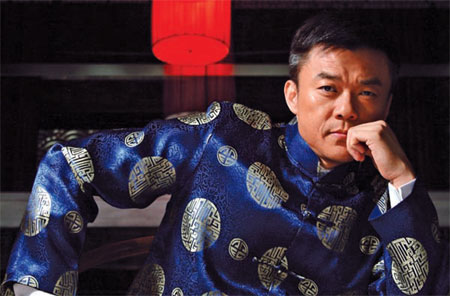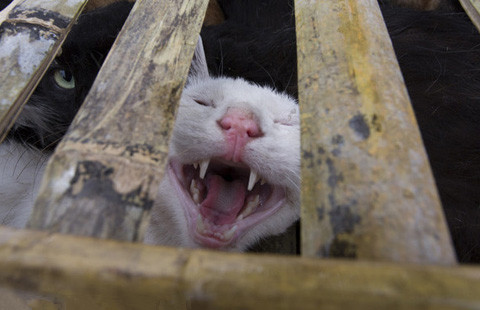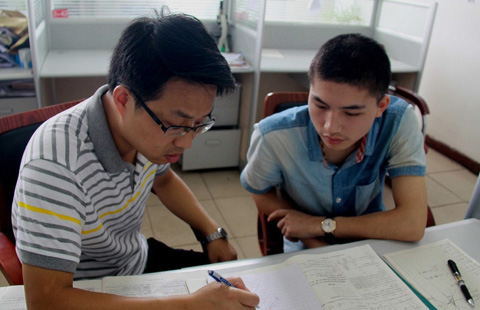New York gets taste of the yage
Updated: 2014-05-20 11:21
By Amy He in New York (China Daily USA)
|
||||||||
|
Fan Jingma just wrapped up a four-city tour of Yage: A Poetic Sense of China with a performance at Carnegie Hall. Fan created yage, a new genre that combines Chinese poetry with song. Provided to China Daily |
When opera singer Fan Jingma first introduced a new musical genre, yage, to audiences back home in China five years ago, they were unenthusiastic.
Yage literally means "elegant song" and combines poetry with song, in the tradition of French chanson and German lieder. But Fan said that Chinese audiences were indifferent when they first heard him singing it, contrasting sharply to Western audiences, like the sold-out crowd that caught Fan's performance at Carnegie Hall on May 15.
"The Chinese listeners think, 'We know that. You're just using bel canto techniques and singing in Chinese and we've been doing that for a long time.' But what they don't understand is that it's the first time I'm raising the Chinese language-hanyu-into the aesthetic level of singing. We never consider our language as a singing language," Fan told China Daily.
Yage requires bel canto singing technique combined with strictly regulated articulation of Chinese pronunciation "to create a natural fusion of the bel canto technique, Lieder style, and Chinese poetry", according to Fan's website.
Fan's concert in New York, Yage: A Poetic Sense of China, was his last stop in his four-country tour that started six months ago. Fan performed with the China Philharmonic String Quartet, with Chen Min on piano and Erika Rauer as guest soprano.
"Carnegie Hall was sensational, it was sensational. It was more than I expected," he said. "We brought the house down."
Audience members reacted enthusiastically to the music, which Fan said he didn't expect because the genre is so new, even to Chinese listeners. Fan said that he realized after singing for years in German, Italian, Russian and English, that he's never spent any time trying to figure out how Chinese can be sung using similar techniques. So he spent time experimenting, infusing Chinese language with bel canto skills he learned from singing in the opera.
"Western audiences got more excited about the music than the Chinese did because this is something familiar, something they know and heard about. They cannot tell about why they feel so familiar, but they feel it," he said.
Listeners often have a stereotype about Chinese music, Fan said, thinking that Chinese music sounds are "high, screaming, yelling" noises to them.
"It's interesting, but they don't want to accept it," he said. "But this time [with yage], they feel something different. These are sounds from their world, so there's a feeling of familiarity, but they don't know why."
Chongqing-born Fan studied at the Sichuan Conservatory of Music before going to Italy to study under Italian opera singer Carlo Bergonzi, and then to New York to study with Franco Corelli.
Since creating the yage genre, Fan has drawn a lot of interest from fellow singers, who have been asking him about technique.
Fan has a foundation dedicated to yage, The Art of Yage Fund, and is funded by the government. Through the foundation, he was invited to perform in Austria, the Czech Republic, Singapore, with the last stop being New York.
"I don't consider the genre mature yet. It's still the very beginning stage of development," Fan said. Fan gave a performance lecture at Yale University on May 17 because of a relationship Yale has with Tsinghua University, one of the tour's presenters.
After returning to China, Fan will continue to do research on Chinese music and hopes to settle down. He also plans to record yage music for Air China, one of the sponsors of the tour.
Air China wants to make Fan's music available in their first-class cabins or as gifts to frequent fliers and gold cardholders.

 Move to domestic software pressures foreign companies
Move to domestic software pressures foreign companies
 China navy is 'highlight'
China navy is 'highlight'
 Chinese navy in Hawaii for joint exercise
Chinese navy in Hawaii for joint exercise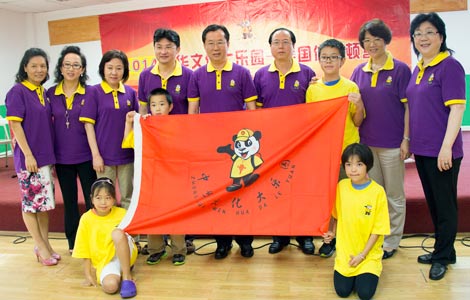
 Culture camp delivers authentic China
Culture camp delivers authentic China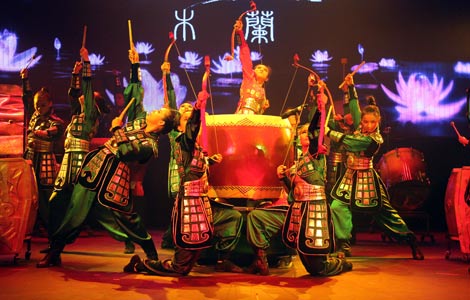
 Ancient Chinese folktale returns to New York City
Ancient Chinese folktale returns to New York City
 US admiral tours Chinese warship
US admiral tours Chinese warship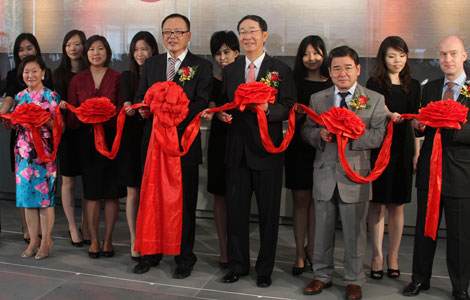
 Bank of China opens branch in Queens
Bank of China opens branch in Queens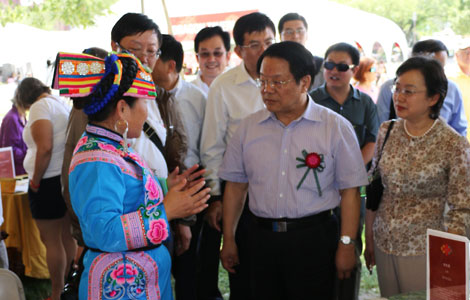
 Minister: Culture the strongest bond linking China, US
Minister: Culture the strongest bond linking China, US
Most Viewed
Editor's Picks

|

|

|

|

|

|
Today's Top News
Top-level general expelled for graft
China says no evidence of pet link
US sends 300 more troops to Iraq
Palace Museum feeling the squeeze of visitors
Slower CPC membership growth reflects stricter recruitment
US business-jet company awaits green light to operate in China
Move to domestic software pressures foreign companies
Bensonhurst becomes Brooklyn's second Chinatown
US Weekly

|

|
